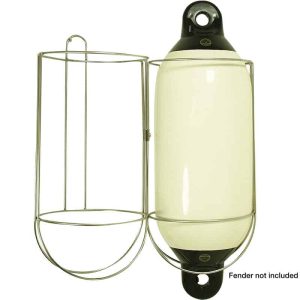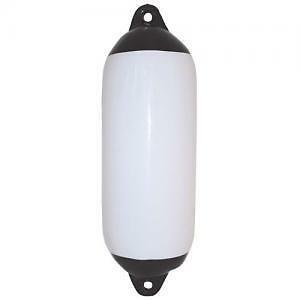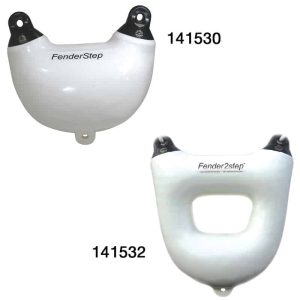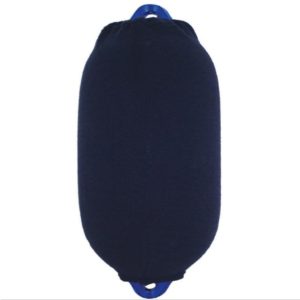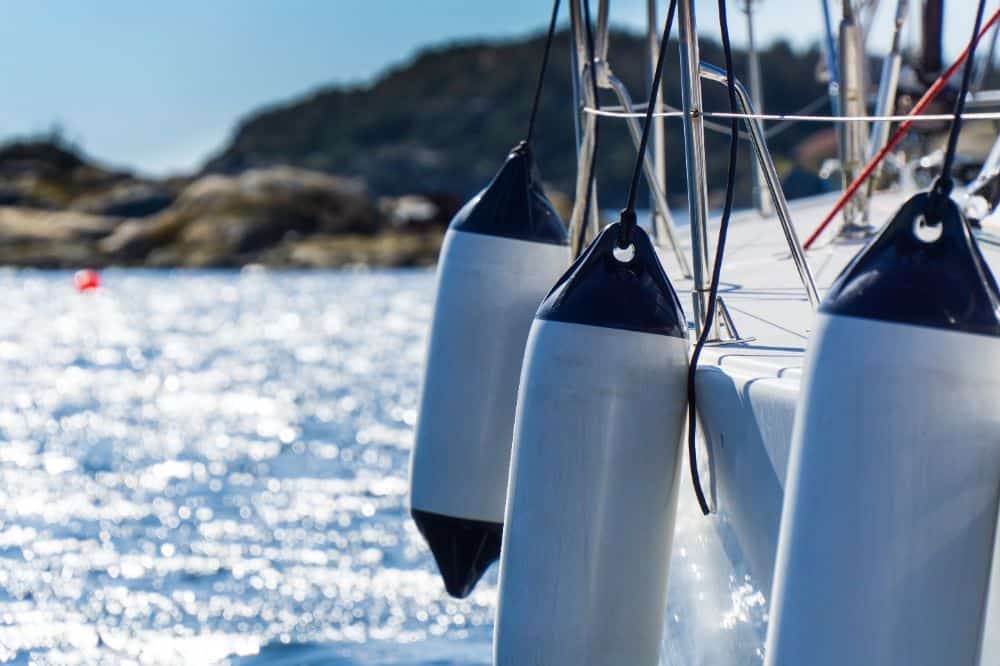
Protect Your Vessel With The Right Boat Fenders
Fenders are crucial for protecting your boat from damage when docking or mooring. While they may seem like a small accessory, a good fender can make all the difference in preventing costly damage to your boat. Choosing the right fenders for your boat can be overwhelming with so many options on the market. This comprehensive buying guide will help you navigate all the information you need to choose the perfect fenders for your boat that will provide optimal protection and enhance your boating experience.
Different Types of Fenders
The most popular type of boat fenders are cylindrical, but you can also find spherical, rectangular, inflatable and non-inflatable versions. Each type has its advantages, and the best choice for your boat depends on your vessel’s specific needs.
Cylindrical Fenders
Cylindrical fenders come in diverse lengths and diameters, tailored to the boat’s size requiring protection. Their cylindrical design facilitates effortless storage and straightforward mounting on the boat’s hull. Among the top choices in this category are the renowned Majoni Fenders, known for their outstanding value and versatility. These fenders are available in an extensive range of sizes, accommodating everything from small runabouts to large yachts and cruisers, ensuring a suitable option for every vessel.
Fender Baskets
Fender baskets serve as a key accessory for efficiently storing your boat fenders. These baskets are constructed from durable materials that resist corrosion and harsh weather conditions, ensuring their long-term utility. When selecting a Fender Basket, ensure it accommodates your Fender size for optimal storage efficiency. Although these baskets do not contribute to the protective functionality of fenders, they play a vital role in maintaining an organised and clutter-free vessel, enhancing your overall boating experience.
Spherical fenders
Spherical fenders are great for larger boats because they provide the most coverage, which is also why they are more difficult to mount and store. They are a good choice if you need additional protection against impacts from large objects. The spherical shape distributes the force of an impact over a larger area, reducing the chance of damage to your boat.
Inflatable Fenders
Inflatable boat fenders offer versatility and are prized for their convenient storage and effective cushioning capabilities. Their inflatable nature makes them a favoured choice among boaters facing space constraints. Among the various options available, Majoni stands out as the most popular brand, offering a comprehensive range of sizes to accommodate boats of various sizes with ease.
Solid Fenders
Solid fenders, on the other hand, provide robust and reliable protection. Crafted from durable materials like closed-cell foam or moulded plastic, they are ideal for heavy-duty usage and can withstand harsh conditions, ensuring your vessel remains well-guarded.
1 Step Fenders
1-step fenders provide a convenient and straightforward solution for boarding your boat. Their streamlined design, featuring a solitary step, facilitates easy embarking and disembarking, particularly during tricky docking scenarios. Among the favoured options is the renowned Dan-Fender 1 Step Fender.
2 Step Fenders
For individuals seeking enhanced accessibility and safety, the two-step fenders stand out as an exceptional choice. These fenders offer not only outstanding protection but also come with integrated steps, streamlining the boarding process and elevating the overall comfort and security of your boating experience. You can pick up the Dan Fender 2-Step Fender from our website.
Choosing the Right Size and Quantity of Boat Fenders
Determining the Appropriate Fender Size for Your Boat
The right size is the first factor you need to consider when purchasing boat fenders. Fenders that are too small may not be able to prevent your boat from making contact with a hard surface, and fenders that are too large can create store issues. The ideal size of fenders for boats is based on the boat’s overall length (LOA), displacement, and beam. A general rule of thumb is that the fender’s diameter should be one inch for every four to five feet of LOA.
Calculating the Number of Fenders Needed Based on Boat Length
Once you have determined the appropriate size fenders for your boat, you need to determine the number of fenders required to protect your vessel. This depends on your boat’s length, weight, width and the docking conditions. A safe general guideline is to use at least three fenders for boats up to 25 feet and add one additional fender for every 10 feet of length beyond that.
Considering the Docking Environment and Conditions
When choosing fenders for your boat, you should also consider the docking environment and conditions. This includes factors such as wave action, tidal fluctuations, and wind conditions, which can vary depending on your boating area. Generally, a larger fender is more effective when dealing with waves, and shorter, wider fenders are better suited for calm waters. Flat boat fenders might be more appropriate if you’re planning to dock in tighter spaces or need more bumpers.
Attachment Options for Boat Fenders
There are several different styles of attachment options available for boat fenders:
Fender Lines and Ropes: Fender lines and ropes are the most common way to keep boat fenders in place. Depending on your needs, these come in various lengths and can be used to connect one side of the boat to the other or run between two cleats. The most popular Fender line is the BLA Double Braid Fender Line, made from a blend of polyester and nylon for superior strength.
Fender Hooks: Fender hooks are an easy-to-use solution that quickly attaches to the boat’s railing. They are available in different sizes and can be used with various fenders.
Fender Baskets and Rails: Fender Baskets and Rails offer an ultimate all-in-one solution that ensures hassle-free attachment of fenders. Designed to be easily mounted on boat railings, these innovative accessories provide a convenient and secure method of keeping your fenders securely in place, even when stored for extended periods of time. With Fender Baskets and Rails, you can have peace of mind knowing that your fenders will always be in their designated spots, ready to protect your boat whenever needed.
Choosing the Most Secure Attachment Method
When it comes to securing your boat fenders effectively, it’s crucial to take several important factors into account. First and foremost, you should factor in the size of your boat, local environmental conditions, and the frequency of your docking ventures in various locations. These considerations will guide you in selecting the optimal attachment method to meet your specific needs. Keep in mind that most fenders are typically fastened using mooring lines; however, it’s essential to go beyond this basic step to prevent damage or the loss of your fender. Be sure to carefully determine the appropriate lengths and types of rope to employ in this process. Once you’ve made these thoughtful decisions, you can confidently adjust your fenders to provide top-tier protection against potential water hazards.
Practical Considerations for Boat Fenders
Storage Space Constraints and Compact Fender Options
Space is limited on a boat, so when selecting fenders, take into account their size and the space they occupy when not in use. Flat boat fenders are a great choice for vessels with limited storage capacity as they can be stored compactly without the need for inflation. They can also be stacked, allowing for efficient storage in smaller areas
Colour Choices and Aesthetics
While boat fenders may seem like a functional accessory, they can also add great aesthetics to your vessel. When selecting a boat fender, consider the colour options available and how they will complement the other elements of your vessel. Choosing fenders that match your boat’s accent colour or adding some personalisation can make your boat look even better.
Fender Weight and Ease of Handling
Fender weight is another important consideration. You want manageable fenders to handle when hurrying to dock or leaving a dock. Choosing a fender that you can handle quickly and easily is essential. Handling heavy fenders can make docking a lot harder and more stressful than it needs to be. Therefore, it is best to examine the weight of your fenders before making a purchase.
Impact on Docking and Mooring Manoeuvres
When choosing boat fenders, it’s essential to consider their impact on docking and mooring manoeuvres. If the fenders are insufficient or too small, it can lead to your vessel getting knocked around, causing damage. Your boat’s size and the areas where you dock frequently should influence the fenders’ number, size, and placement. Some boats may require more fenders strategically placed around the vessel to ensure maximum protection on all sides.
Preserve your Fender with Protective Fender Covers
Utilising fender covers is a smart and practical approach to maintaining the condition of your boat’s fenders. These covers serve as protective shields, shielding your fenders from the wear and tear of the elements. Whether it’s the scorching sun, relentless rain, or abrasive contact with docks and other surfaces, fender covers act as a barrier, prolonging the life of your fenders. They not only preserve their appearance but also ensure that your fenders remain fully functional, ready to safeguard your vessel whenever needed. In the world of boating, where every component plays a critical role, fender covers are a small investment that pays off in the long run, keeping your fenders in top-notch condition and your boat well-protected.
Dual Purpose Fenders
Dual-purpose fenders, like the Dan Fender 2 Step Fender, offer a remarkable blend of functionality and convenience in the boating world. These innovative fenders not only provide reliable protection for your vessel but also serve as valuable aids for embarking and disembarking. With their integrated steps, they make boarding the boat a hassle-free endeavour, especially when navigating the challenging transition from water to deck. This dual functionality not only simplifies access but also optimises space efficiency, eliminating the need for separate boarding steps. As a result, dual-purpose fenders exemplify the ingenuity and practicality that enhance the overall boating experience, ultimately contributing to smoother and more enjoyable adventures on the water.
Maintaining and Replacing Your Fenders
It is important to regularly inspect and maintain your fenders to ensure they are in good working condition. Make sure you check for any signs of wear and tear, such as cracks or holes, and replace them if necessary. Fenders can also become dirty over time, so it is recommended to clean them with mild soap or a specialised fender cleaner. You can read in detail about how to properly maintain and clean your fenders in our article “Making the Most of Your Boat Fender Investment“.
Understanding Boat Fender Pricing
Brand
The brand of boat fenders can significantly impact their pricing in the market. Established and renowned brands often come with higher price tags, as they are trusted for their quality, durability, and reliability. These brands have invested in research, development, and manufacturing processes, which can result in higher production costs that are passed on to consumers.
On the other hand, lesser-known or generic brands may offer more budget-friendly options. However, it’s essential for consumers to carefully evaluate the quality and performance of these fenders, as they may not meet the same standards as well-established brands.
Material
The price of boat fenders can also vary based on the materials used, craftsmanship, and additional features like integrated steps or specialised designs. Premium materials and advanced technologies can drive up the cost of fenders, but they may provide superior performance and longevity.
Different Sizes
There are many different types of boat fenders, from round to flat and more. Each type has its price range, which is affected by size, shape, and durability. In general, smaller fenders are less expensive than larger ones but may provide less protection for your boat. For example, a small inflatable fender may suit a small boat, but a larger yacht will likely require more robust protection.
Styles
In addition to size considerations, the style of boat fenders also plays a significant role in pricing. Flat boat fenders, for instance, tend to be more expensive than round ones due to their unique design and the materials required for production. These variations in style, along with their associated costs, offer boaters a range of choices to match their specific needs and preferences.
Identifying Value for Money in Boat Fender Purchases
In essence, discerning value for money when purchasing boat fenders involves a comprehensive consideration of multiple factors. Notably, the brand carries substantial weight in determining pricing, with established names commanding premium costs based on their track record of quality and reliability. Conversely, lesser-known brands offer more budget-friendly alternatives but warrant careful scrutiny for performance. Material selection is another pivotal aspect, influencing both price and durability, as advanced technologies and premium materials can elevate costs while delivering superior longevity. Additionally, the size and style of fenders significantly impact their price range, offering boaters the flexibility to tailor their choices to match specific vessel requirements. By grasping the interplay of these factors, boaters can make informed decisions when investing in boat fenders that ensure both protection and affordability in their marine adventures.
Conclusion
When it comes to boat fenders, there’s a lot to consider, but this comprehensive guide has equipped you with the knowledge to make informed decisions. Your boat’s protection and your overall boating experience depend on selecting the right fenders that offer both optimal security and affordability. With this understanding, you’re now well-prepared to identify the true value for money in your boat fender purchases, ensuring countless safe and enjoyable voyages on the water. Browse through our top-notch fender options and discover the ideal fit for your vessel. From established brands to budget-friendly alternatives, we provide a diverse array of choices to suit your preferences. Additionally, you can get in touch with us with any questions or to enquire about a product not listed on our website.
Boat Fender FAQs
How do boat fenders protect the hull?
Boat fenders absorb the impact of waves, wind, and other external forces that could damage your boat. They are designed to cushion any blows and provide protection for the hull.
Can I use boat fenders on any type of dock?
Various boat fenders can suit different docks, but always check the manufacturer’s instructions for compatibility. Some docks may require special fittings. Also, be mindful of tide and fender placement relative to the dock during tidal changes.
How long do boat fenders typically last?
The lifespan of a boat fender will depend on the quality and material used and how often it is used. Generally, high-quality fenders can last 5 to 10 years with proper maintenance. Some boat fenders may also come with warranties that can provide additional protection for your purchase.
What are the differences between inflatable and non-inflatable fenders?
Inflatable fenders are made from a flexible material that can be filled with air to provide extra cushioning. On the other hand, non-inflatable boat fenders are typically made from rigid materials such as closed-cell foam or moulded plastic. Inflatables offer better protection against impacts and abrasions, while non-inflatables are lightweight and easy to store.

